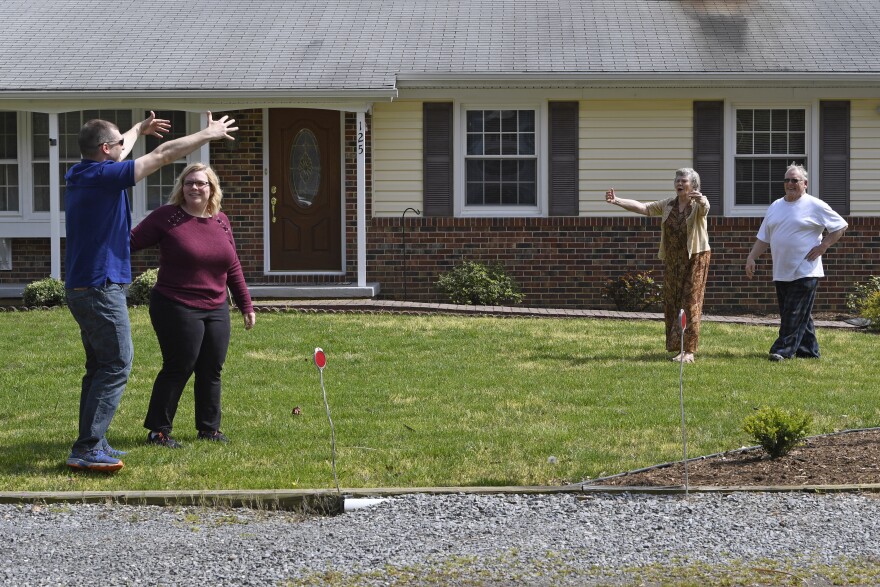COVID-19 has forced many people inside their homes for weeks — and it's taken a toll.
But as the economy opens back up, social distancing is still expected. And some wonder how much longer isolation will remain a part of daily life.
"I know it’s not over, but I cannot live like this," Laura Hopkins said.
Her grandmother died just as the lockdown began and they couldn't hold a funeral. Her grandfather, her "Papa," is alone and grieving. She can't hug her dad or sister. For weeks, she and her wife have socially isolated themselves inside their Dallas home with two dogs.
Hopkins isn't ready to head out to restaurants or bars — but she can no longer find the willpower to stay away from friends. So she’s going camping.
"Yeah," she said. "I’m just gonna go. Forget it! Forget the hand sanitizer, forget the mask, forget being safe all the time. Like, I would rather strictly quarantine for 15 days after getting out and living a quote, unquote normal life than to stay here one more day."
Hopkins is probably suffering from quarantine fatigue.
Dr. Madhukar Trivedi, director of UT Southwestern’s Center for Depression Research and Clinical Care, said the symptoms are easy to spot.
"There are people who are more willing to take more risks, they recognize this is a risk but they feel so stir crazy in the house they get drawn out," he said. "Then they see other people doing it and they feel like maybe it is ok."
While 'Quarantine Fatigue' is not an official diagnosis, Trivedi said it's something physicians recognize.
He said there’s a ticking clock inside each of us that measures how much stress and loneliness we can actually handle. Feelings of loneliness build up over time — faster in some than others. And not everyone can be comforted by a Zoom call.
"While everyone tells them, you should do virtual contacts but it’s not the same and it's not easy. It’s different than the way we deal with when we physically see each other," Trivedi said.
That's something that really resonates with Hopkins.
"Like, it makes me feel worse to see all their faces on a screen and it doesn’t bring the same level of comfort or joy or, honestly, just a release of energy to get on a Skype call," she said.
With the economy opening back up, people will leave isolation craving contact with the outside world. That could make things tricky for public health professionals who continue to encourage social distancing practices, even as people are allowed to gather again.
Kayla Fair is an assistant professor at the University of North Texas Health Science Center in Fort Worth and her work focuses on human behavior.
"How can we help individuals make the healthiest choice, the easiest choice?"
Fair said when it comes to public health, people get lax when their perception of risk goes down. Maybe they think the danger has passed or maybe wearing a mask in public is uncomfortable. She said the trick is finding ways to promote that we’re still all in this together — and to veer away from negativity.
"But we don’t want to create an environment where there’s a lot of fear and people don’t feel like they have the tools to make sure they can mitigate these risks," she said.

But for people suffering from quarantine fatigue, it's often hard to summon the strength to even follow basic rules of public health — endless hand washings, the masks, those 6-foot buffers. Fair said emotional health is an important part of the equation.
"I think a lot of what we’re seeing now is people are lonely, people are tired," she said.
Months of isolation and dismal economic news have taken their toll. Dr. Trivedi said the long road stretching ahead of us means quarantine fatigue may eventually touch all of our lives.
He said he's convinced "the COVID-19 pandemic will wind down but the mental health pandemic is just beginning and it is going to last longer."
For Laura Hopkins, keeping her spirits up during this time of great restriction has been a tough go.
"So, for now," she said, "I grocery shop and I stay at home and I go see my Papa and I hope and hope and hope that this will be over soon."
For her at least, it's becoming clear that as the pandemic goes on, will power is running out.



